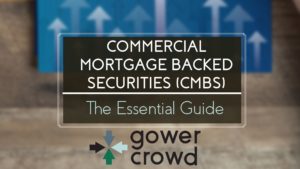The Step by Step Ultimate Guide to Starting a Real Estate Syndication Company
Real estate syndication is more than just a way to “invest” in real estate. It is a business opportunity in its own right, since the advent of crowdfunding, perhaps the signature real estate business opportunity of a lifetime.
Over 120,000 investors participated in syndications in 2020, producing record profits for the companies that created those syndications. A profitable syndication company is the Holy Grail of today’s real estate investing ecosystem.
Wherever they stand in their journey, nearly every real estate investor dreams of starting a syndication company. So how is it done? What does it take to succeed in this competitive field?
This guide will describe to you, step-by-step, how to start a real estate syndication company from scratch.
Related: Syndication Best Practices
What is a Real Estate Syndicate?
A real estate syndicate is a contractual arrangement whereby investors pool their money to buy a large commercial property.
A syndicate might buy an apartment complex, an office building, a retail center, a warehouse, an industrial property, or raw land to develop any of the above.
Title to the real estate vests in the name of an LLC or other entity created specifically for the investment. A contract called the private placement memorandum divides the LLC into securities (“shares”) that cash investors can buy as equity investors. A syndicate may also raise money from investors as debt.
Many cash investors will be passive investors, meaning they have no involvement in the property’s day-to-day operations. Instead, they just collect their share of the cash flow.
An individual or a small team, known as the deal sponsor, retains all the rights and responsibilities for property operations.
Understanding How Real Estate Syndication Companies Work
Real estate syndication companies are led by professional deal sponsors. They create real estate syndicates for passive investors to fund.
The functions performed by a real estate syndication company include:
-
- Finding opportunities to buy real estate, usually through marketing or networking.
-
- Negotiating the purchase contract once a suitable property is found.
-
- Creating a business plan for the operation of the property.
-
- Performing due diligence, including inspections, financial audits, and title work.
-
- Generating the paperwork which makes the syndicate legal, enforceable, and compliant with SEC regulations.
-
- Raising money from passive investors to fund the equity in the capital stack.
-
- Sourcing and applying for a commercial mortgage loan to fund the debt in the capital stack.
-
- Closing the deal and transitioning property to the new ownership.
-
- Operating the property in alignment with the business plan, either through self-management or with the help of third-party property managers.
-
- Informing the passive investors of the condition of the property and progress of the business plan.
-
- Distributing cash proceeds to passive investors.
- Selling the property at the appropriate time.
Steps for Starting a Real Estate Syndicate Company
-
- Set Your Company Goals. What kind of property do you want to buy, and with what strategy? A long buy-and-hold? A quick flip or development? What ROI or IRR do you intend to produce? Create a business plan and a mission statement to define your company’s strategy and purpose.
-
- Build Your Team. Even if you start as a solopreneur, no real estate syndicate is a one-person show. Professionals to start locating include a real estate contract attorney, an SEC attorney, a litigation attorney, a property management company, a commercial mortgage broker, and an insurance broker.
-
- Build a Network of Investors. If you wait until you have a deal under contract to start sourcing money, it may be too late. SEC regulations may require you to have a previous relationship with your investors, depending on the registration exemption you choose. That means the sooner you build that relationship, the better. Start meeting potential passive investors at networking events or online and introducing yourself as a syndication sponsor.
- Begin Sourcing Deals. Ways to find deals include networking with brokers, networking with property managers, and direct marketing to property owners.
Advantages and Disadvantages of a Real Estate Syndication Company
Pros
- Pooling investor cash enables the sponsor to access large properties with the benefit of economies of scale and amazing financing options.
- The syndication sponsor controls all operations of the deal.
- Raising investor money reduces the sponsor’s exposure to risk.
Cons
- The sponsor must comply with strict SEC regulations.
- Commercial loans can be tough to qualify for. Early deals may require expensive partnership agreements with experienced sponsors.
- Passive investors may not trust their cash to an inexperienced sponsor who has no skin in the game.
Different Ways to Structure a Real Estate Syndication Company
A real estate syndication company may be structured as:
- A sole proprietorship or general partnership (not recommended due to the liability exposure).
- A single-member LLC.
- A multi-member LLC or limited partnership.
Each property the company syndicates will be held in a single-purpose LLC. The syndication company will be a manager of the LLC. This holding company gets divided into shares, which passive investors buy to obtain their equity interest in the deal.
Related: Phases of Real Estate Syndication
Profiting from Real Estate Syndication
A deal sponsor provides a valuable service for passive investors — finding, vetting, closing on, and operating a lucrative commercial property. Passive investors fund syndicates because they do not have the time or the expertise to perform all of these tasks themselves.
That said, sponsors will typically co-invest in projects. In most cases this means the sponsor will contribute anywhere from 5% to 20% of the total equity needed and this will be invested on the same terms as individual, passive investors. Known colloquially as ‘skin in the game,’ by having something to lose, the co-invest helps ensure an alignment of interest between the sponsor and their investors.
For this reason, and because the sponsor will be doing all of the work required to execute on the business plan for their deals, passive investors will also compensate the deal sponsor for their time and expertise. If the sponsor has a track record of success, they will agree to pay the sponsor a promoted share of the project’s profits which is a bonus for delivering predefined return hurdles.
Syndication companies can therefore generate revenue from their sponsorship in at least three ways:
-
- A percentage of the collected rent. Anywhere from 2-5% of the gross receipts. This is the most common form of compensation, especially for new sponsors since their payment directly depends on the property’s financial performance.
-
- An equity interest. The sponsor may retain an equity interest in the property without having to pay cash for it. This is typically between 20% and 30% and can sometimes be higher. The equity interest entitles the sponsor to a portion of the cash flow distributions. It also entitles them to a portion of the proceeds from the sale or refinance.
- An acquisition fee and/or disposition fee. An acquisition fee could be anywhere from 0.5-2% of the purchase price of the property. A disposition fee could be 0.5-1% of the final sale price.
Best Platforms to Use for Investing
Online crowdfunding platforms have emerged as critical players in the real estate syndication space. Experienced sponsors may use them to access a much larger investor pool for their syndicates.
The barrier to entry is high, so crowdfunding should be a long-term goal for a syndication company, not an expected funding source for the first deal. At present, the best crowdfunding platforms for real estate syndications are:
-
- CrowdStreet. CrowdStreet was founded in 2014 in Portland, OR. Unique among platforms, it allows users to invest directly with sponsors. Only accredited investors may invest using CrowdStreet, and sponsors must pass a rigorous screening process. The platform’s focus is secondary markets with high job growth, high cap rates, and lower valuations.
- Fundrise. Founded in 2012 in Washington, DC, Fundrise pioneered the concept of the “eREIT,” a kind of diversified online real estate Both accredited and non-accredited investors can fund deals using Fundrise.
Statistics for Real Estate Syndicates
-
- More than 120,000 investors subscribed to syndications in 2020
-
- $3 million average deal size.
-
- 80-95% of the initial capital came from passive investors.
-
- 5-20% of the initial capital came from syndicate sponsors.
-
- 5-10% preferred returns, with an 8% average preferred return.
-
- 5-2% acquisition fees, with 1% being the average.
- 2-9% of the gross rents paid to deal sponsors as management compensation.
Related: Your Guide to Investing in a Real Estate Syndication
Ways GowerCrowd can Help
Since the 1980s, Dr. Adam Gower has helped hundreds of syndication sponsors create sustainable capital resources, raising hundreds of millions of dollars for the purchase of lucrative commercial real estate investments.
GowerCrowd offers the following resources to help you build a profitable real estate syndication company:
Free Fundraising Resources
GowerCrowd has prepared a library of free resources to get you started — thousands of dollars in insights compiled from top syndication sponsors, yours for no charge. Titles include:
- What Investors Care About Most When Evaluating Syndication Opportunities
- 6 Ways to Build Your Investor List Using LinkedIn
- How to Attract Investors by Writing Articles and Blogs
- How to Write Real Estate Content that Gets Read
- How to Raise Money from Family Offices
Advanced Real Estate Investor Education
No one succeeds at anything without first becoming educated in how to do it. GowerCrowd offers advanced training materials to help you avoid critical mistakes and build a successful company from Day One. Our advanced materials include:
- The Ultimate Guide to Investing in Real Estate Syndications
- The 8 Financial Keys to Real Estate Investment
- An Insider’s Guide to Real Estate Due Diligence
Pitch Your Deal on the GowerCrowd Podcast
Have an active or pending deal and want to raise money for it? The GowerCrowd podcast offers a platform for deal sponsors to pitch your deal across 25 podcast channels, a massive social following, and a newsletter list of over 13,000 readers. Click here to learn more!
Conclusion
Succeeding in real estate syndication is not easy … but at the core, it is simple. You can learn the skills it takes to succeed, and you can learn them fairly quickly.
With commitment, perseverance, and the will to recover from the mistakes you will inevitably make, your real estate syndication company can become an engine of wealth and prosperity beyond your wildest expectations.
Interested in starting a real estate syndication company? Start raising money online with GowerCrowd today!
If you liked this article and would like to learn more about raising capital for real estate investing, check out some of the resources below:
If you have only just started in real estate development, have completed no deals, have no email list, but know you want the freedom and wealth being a real estate developer brings, then I suggest your first step is to start evaluating deals so you can recognize a good one when you see it.
Here’s where you should start. You’ll learn everything you need to know – the different types of real estate, different development strategies, how real estate cycles influence the market, and all about due diligence.
If you want to find deals and raise money for them so you can start your real estate development business, then learning how to conduct due diligence so you can pitch your deals better to investors is a great place to start.
If you’ve already purchased one or more real estate project and are seeing more opportunities than you can finance, then now is the time to start building your investor network so you can finance all your next deals quicker.
You’ve already got some momentum; now start finding and educating prospects about what you’re doing so you can build an email list of people to pitch to when you’re ready to raise money for your next deal.
This is what we build for private clients all the time – it’s called the Investor Acquisition System and you can access the entire program right here so you can find prospects, and convert them into being deep pocketed, repeat investors in your deals.
If you are a seasoned pro with multi-cycle experience, a substantial portfolio, a decent deal pipeline, and find yourself spending too much time raising equity capital because you’re still doing it in-person, then it’s time you put technology to work for you.
The wonderful thing about doing this is that you’re not going to be doing anything different than you’re already doing and, guess what, you’ll never have to sit through investor meetings again.
Sounds crazy I know, but I lay the whole thing out for you in this white board workshop where I personally show you exactly what it takes for you to transform your equity raising into a fully automated, capital raising machine so you can find new investors while increasing commitments from your existing network.
RELATED ARTICLES





